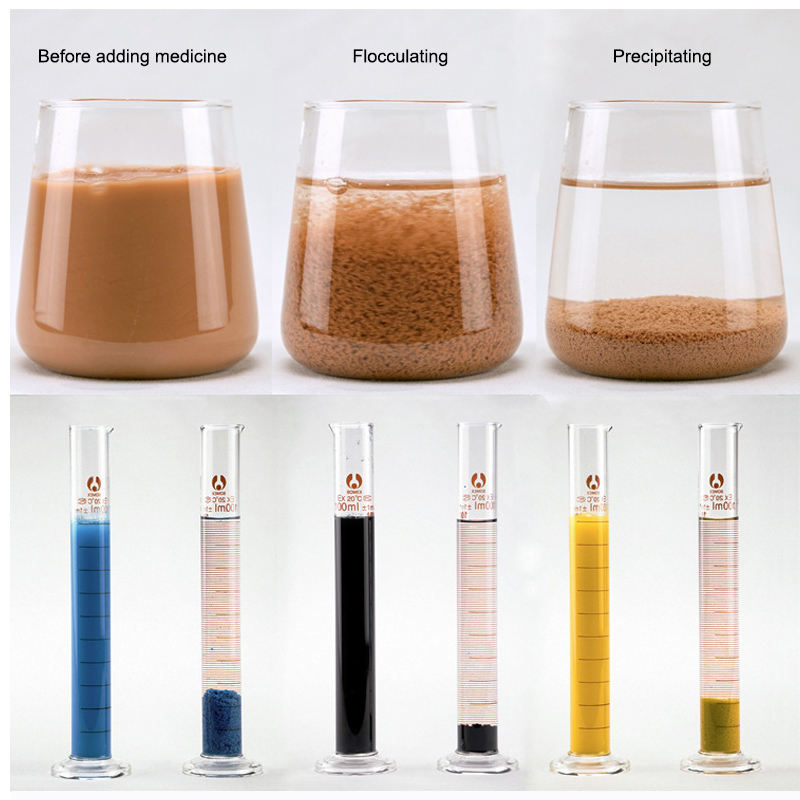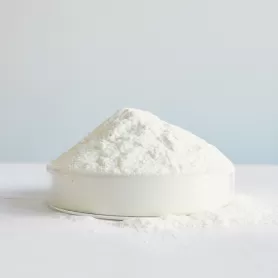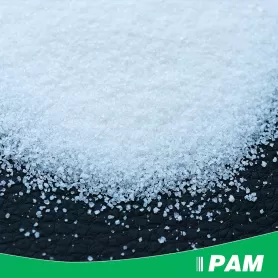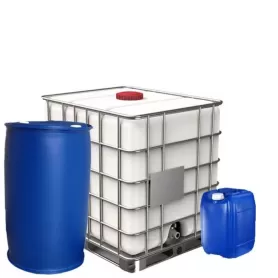
Anionic polyacrylamide (APAM) is a high-molecular-weight, water-soluble polymer flocculant widely used in industry to improve solid-liquid separation. Its long chains carry negatively charged functional groups that bind suspended particles, causing them to aggregate and settle. This flocculation process clarifies water and accelerates sedimentation. APAM is a key component in water treatment processes, often used alongside coagulants like polyaluminum chloride (PAC) to enhance flocculation.
Tairan Chemical supplies high-purity APAM products engineered for these uses. Our anionic polyacrylamide is tailored for fast dissolution and strong flocculation, ensuring efficient operation in various processes. Below, we highlight the main applications of APAM and explain how it benefits each industry.
Key Applications of Anionic Polyacrylamide
Municipal & Industrial Water Treatment: APAM is widely used in sewage plants and factories to aggregate contaminants and improve sedimentation. It enhances sludge dewatering and yields clearer effluent.
Mining & Mineral Processing: In mining operations, APAM flocculates fine ore and tailings particles, thickening slurry and clarifying process water. This helps reduce pond volumes and supports water recycling.
Oil & Gas Industry: APAM improves water viscosity in enhanced oil recovery (EOR) and treats drilling fluids. It also aids in removing suspended solids from produced water and wastewater.
Pulp, Paper & Textile Industries: APAM enhances fiber retention and drainage in papermaking, and it aggregates dyes and colloids in textile effluent. This improves filterability and reduces color and organic load in waste streams.
Agriculture & Soil Management: APAM can bind soil particles to reduce erosion on farmland and construction sites. It is also used to clarify process water in food and beverage industries.
Water and Wastewater Treatment
In municipal and industrial wastewater treatment, APAM acts as a flocculation aid to enhance clarification. When added to raw water or sludge, APAM quickly binds with fine particles and organic matter to form large flocs. These denser flocs settle rapidly in clarifiers and thickeners, yielding clearer effluent and more efficient sludge dewatering. By increasing floc density and size, APAM can significantly reduce the chemical dose and processing time required. Many treatment facilities also combine APAM with inorganic coagulants (such as polyaluminum chloride (PAC)) to achieve even higher removal of impurities.
Mining and Mineral Processing
APAM is a standard additive in mining for dewatering tailings and clarifying process water. Mining waste streams often contain very fine clay and mineral particles. The negatively charged APAM chains cause these particles to bind into flocs that settle out of suspension. This greatly improves water clarity and allows recycled water to be reused, reducing freshwater demand. APAM also enables faster thickening of ore slurry, which shrinks the required storage volume. Often, APAM is paired with coagulants to achieve multi-step treatment and maximize solid removal.
Oil and Gas Industry
In the oilfield and energy sector, APAM is used in enhanced oil recovery (EOR) projects and to treat oilfield wastewater. Its long polymer chains increase the viscosity of injection water in polymer flooding, which improves the sweep efficiency of oil extraction. Additionally, APAM helps remove fine suspended solids from produced water by forming settleable flocs. This improves the performance of downstream clarifiers and filters, yielding higher-quality effluent that can be reused or safely discharged.
Pulp, Paper & Textile Industries
Within pulp and paper mills, APAM enhances retention of fibers and fillers on the paper machine wire, speeding up drainage and improving sheet formation. The resulting stronger flocs release water more rapidly, making the drying process more efficient. In the textile industry, APAM is applied to dyehouse effluents to bind and precipitate color-bearing colloids. It aggregates dye molecules and other impurities so they can be removed by filtration or sedimentation. This reduces color and chemical oxygen demand in the wastewater.
Agriculture and Soil Stabilization
Anionic polyacrylamide also finds use outside traditional water treatment. In agriculture and construction, it can stabilize soil and prevent erosion by causing fine soil particles to cohere. When applied to irrigation water or sprayed on soil, APAM helps bind the soil, reducing runoff and nutrient loss. In addition, APAM is used in the food and beverage industry for clarifying juices and other liquids by aggregating suspended solids.
Benefits of Using APAM
Users choose anionic PAM for its strong flocculation performance and versatility. APAM rapidly creates large, dense flocs that enhance sedimentation and filtration, resulting in much cleaner water. This efficiency means less mechanical filtration is needed and lower residual sludge. In practice, APAM can significantly lower sludge volumes and minimize overall chemical usage, improving cost-efficiency. Tairan’s APAM grades are formulated with high molecular weight and purity to ensure quick dissolution and consistent performance in real-world operations.
For assistance selecting the right APAM grade or for bulk supply of anionic polyacrylamide, Contact Us or visit our APAM product page to inquire about specifications and pricing.








